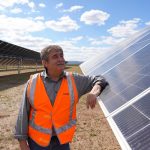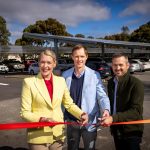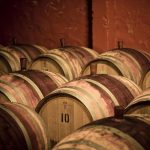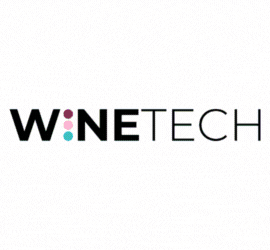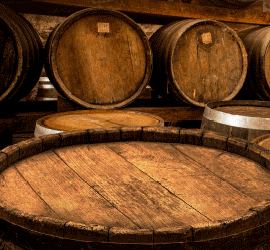TWE chief sustainability and external affairs officer Kirsten Gray. Image courtesy TWE
Australian wines like Penfolds, Wolf Blass, Wynns, Squealing Pig and Pepperjack will reportedly be produced using 100 per cent renewable electricity by 2024, after Treasury Wine Estates (TWE) announced Australia’s largest winery solar installation across its Barossa and Karadoc wineries.
Around 9,500 solar panels will be installed by the end of 2022 at Barossa Winery and Production Centre in South Australia, and Karadoc Winery in Victoria.
The installations, which include solar powered employee carparks, are expected to generate more than 5,500 megawatt-hours of electricity per year, the equivalent of powering 900 homes.
TWE chief sustainability and external affairs officer Kirsten Gray said moving to 100 per cent renewable electricity was the most significant contribution the company could make on its journey to net zero direct emissions.
The initiative was developed in partnership with Shell Energy and is part of TWE’s broader plan to make wine sustainably.
“Electricity makes up about 70% of our Scope 1 and 2 emissions, so switching to renewables is the single biggest and quickest action we can take to reduce emissions,” Gray said.
“It paves the way to meet our target of net zero direct emissions by 2030 and forms the foundation for future innovation and resilience.
“Sustainability is front of mind for our consumers, customers, and our employees globally, and we’re proud to be making progress towards our bold targets. Cultivating a brighter future for everyone means taking action and leading the industry to produce cleaner, greener wine that’s enjoyed by consumers all over the world.”
Shell Energy Australia CEO Greg Joiner said TWE’s commitments in renewable electricity were an important step in becoming a sustainability leader in the global wine and beverages sector.
“With nearly 13,000 hectares of vineyards all over the world, TWE has an opportunity to shape how the wine industry navigates the energy transition,” Joiner said.
“TWE’s investment in renewable energy and emissions reduction roadmap ensures it has a clear and considered pathway to achieving its global sustainability goals.
“Shell Energy’s expertise in end-to-end low carbon solutions means the plan incorporates emissions reduction across the wine company’s operations: from the cellar door to offices, packaging centres and vineyards.”
The Barossa and Karadoc installations are part of TWE’s wider plans to install more than 29,000 solar panels at its wineries and vineyards across the globe and purchase offsite renewable electricity.
At the start of 2022, the company’s Melbourne, Victoria and Napa Valley, California headquarters became the latest of its corporate head office sites to become powered by 100% renewable electricity.
Last year, the company also joined RE100 – a global renewable power initiative that aims to accelerate the transition to a clean economy.
Are you a Daily Wine News subscriber? If not, click here to join our mailing list. It’s free!

